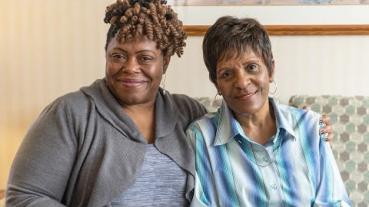One of my most glaring racial microaggressive experiences occurred during the last year of my physical therapy program — when the professor separated our class into two student groups: “The White Guys,” consisting of only white students, and “The Janitors,” consisting of only students of color.
Not only did the professor push students of color to the outer margins of the learning environment, he also insulted hard working environmental services professionals by labeling them as “less than.”
The experience helped me see the path from disparate treatment to poor outcomes: Many students of color did not fare very well in that class due to mental and emotional stress stemming from that microaggressive encounter.
Health outcome gaps
Microaggressions are discriminatory acts directed toward people based on gender, sexual orientation, religious affiliation, disability, race and any other marginalized status.
I have seen racial microaggressions play out over and over again during my 20-plus years as a therapist. Patients, professional colleagues and even strangers have shared their stories and the lasting impact that microaggressions have had in their lives. These stories, along with the never-ending national data regarding ongoing disparate care and health outcome gaps, collectively inspire the research I’m conducting today.
My goal is to foreground the reality that racial microaggressions are a known contributor to negative health consequences caused by disparate care. We know this to be the case in other health care fields, but there is little evidence within physical therapy.
What we do know within physical therapy thus far is the following:
- People of color have lower improvement in their ability to walk and care for themselves after having a stroke.
- People of color are impaired in their ability to access ongoing health care and reintegration into community activities following an illness or injury, such as a spinal cord injury.
- Race-based physical therapy outcome disparities cause unnecessary financial costs and psychological burden for people of color.
This imbalance deserves far more attention.
Steps in the right direction
My goal is to link racial microaggressions and physical therapy outcome disparities for people of color by learning how people of color experience racial microaggressions during their physical therapy encounters.
I am conducting one-on-one interviews with people who have had these experiences. Openly discussing racial microaggressive experiences is significant because it contributes to our current understanding about the impact of racial microaggressions on health equity gaps so recommendations can be made about improvements in physical therapy treatment patterns.
Here at Rush, we are committed to ongoing work toward improving health equity in marginalized communities and populations. My research is a continuation of this effort because it offers first steps in addressing a barrier to health attainment created by racial microaggressions within the physical therapy profession.
This project respects the voice around patients’ experiences in hopes that we can train future generations of health care professionals to develop a lens to critically consider their own biases, and identify with patients’ perspectives when these microaggressions occur.
Paulo Freire spoke widely about how marginalized learners can regain their humanity through their fight for liberation. In the fight to liberate myself after my microaggressive classroom experience, I have come to a place where I can now champion awareness and create safe spaces, free from microaggressions.




